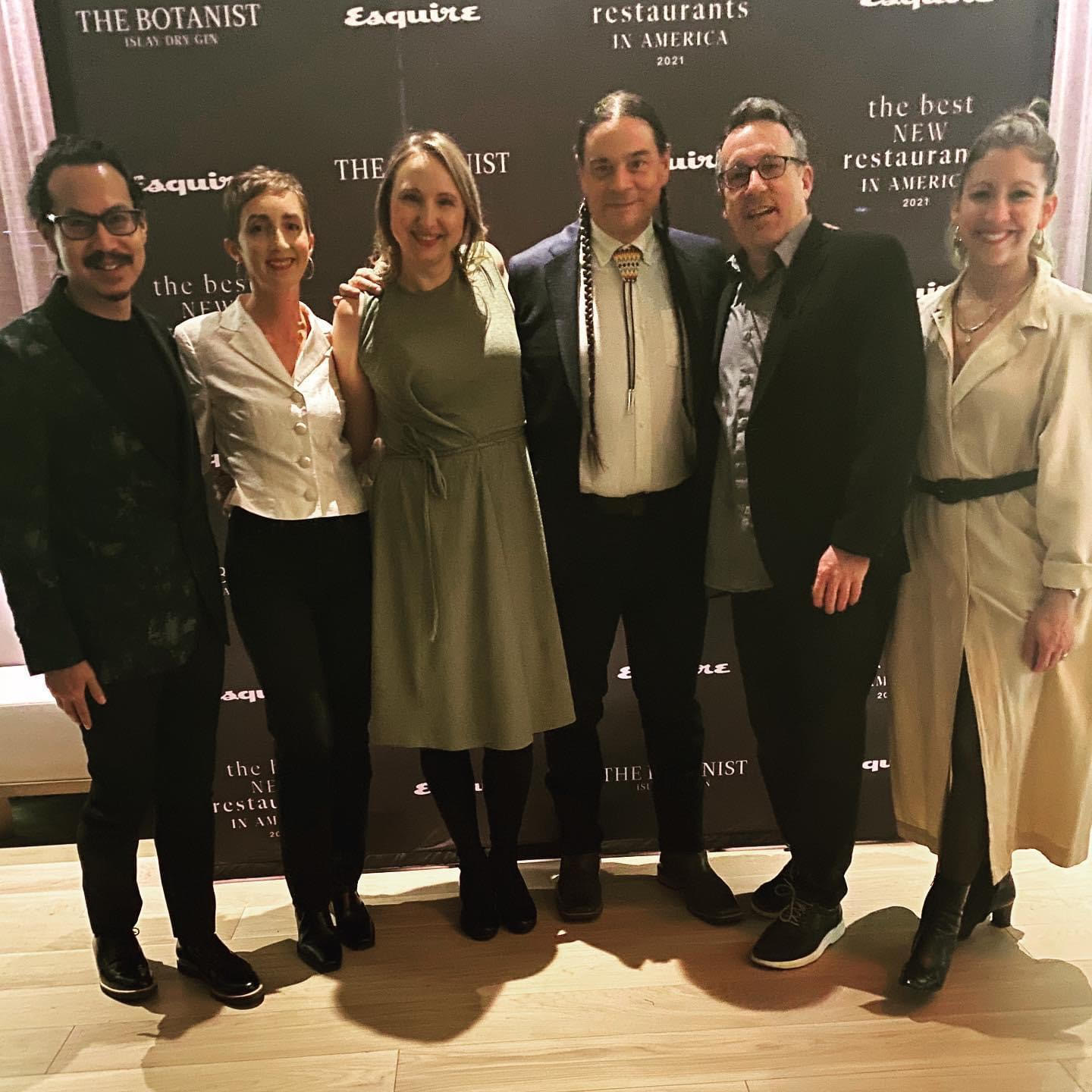
- Details
- By Darren Thompson
MINNEAPOLIS — Owamni, a modern full service Indigenous restaurant by Sean Sherman, who is commonly known as the Sioux Chef, was featured this month as one of the Best New Restaurants in America by Esquire. Each year, the popular men’s culture magazine features 40 restaurants across the country that made an impact on four of the magazine’s writers: Omar Mamoon, Joshua David Stein, Jeff Gordinier, and Kevin Sintumuang.
“The ingredients are ancient, but for most, experiencing things like hand-harvested wild rice, sweet and nutty, is new and revelatory—the taste of a past nearly destroyed by colonization,” Kevin Sintumuang wrote about Owamni. “At chef Sean Sherman and Dana Thompson’s restaurant, built in a former mill along the Mississippi River, tasting dishes made entirely from indigenous ingredients is soul-nurturing. A reclamation. There are the indigenous tea blends. A conifer-preserved rabbit dotted with fresh berries. And the wild-rice tart, made with no colonized ingredients (like flour or refined sugar), is electrifying. To eat here is to experience both the past and the future.”
Want more Native News? Get the free daily newsletter today.
Owamni opened in the summer earlier this year along the Mississippi River in Minneapolis and has had an accolade of recognitions and awards including being featured as one of The New York Times’ list of its 50 new restaurants, and many other publications’ featured new restaurants. Owamni is currently a finalist for the USA Today’s 10 Best New Restaurants with winners announced on December 31, 2021.
Chef Sean Sherman of the Oglala Lakota brings thirty years of James Beard award-winning experience with his wife Dana Thompson to Owamni. The restaurant features a decolonized menu of Indigenous foods and recipes including smoked Lake Superior trout, Red Lake walleye, native corn tacos with cedar braised bison, bison tartare, and conifer preserved rabbit with corn flatbread. Side options include cornbread, cedar and maple baked beans, wild rice, and seasonal root vegetables—all without processed flour, sugar, or dairy products.
“We are so humbled to be given such recognition by Esquire Magazine, naming Owamni #7 on their best new restaurants in America list, along with being named ‘Chef of the Year’,” said Sean Sherman to Native News Online. “This recognition continues to help us reach a broader audience when confronting the invisibility of Indigenous peoples in the food world and opening new doors for future Indigenous Chefs and Entrepreneurs.”
Sean Sherman and Dana Thompson founded The Sioux Chef, a nonprofit organization that provides Indigenous educational and catering services in 2014. Owamni overlooks the sacred Owámniyomni, the Dakota name for St. Anthony Falls.
More Stories Like This
Chickasaw Holiday Art Market Returns to Sulphur on Dec. 6Center for Native Futures Hosts Third Mound Summit on Contemporary Native Arts
Filmmakers Defend ‘You’re No Indian’ After Demand to Halt Screenings
A Native American Heritage Month Playlist You Can Listen to All Year Long
11 Native Actors You Should Know
Help us defend tribal sovereignty.
At Native News Online, our mission is rooted in telling the stories that strengthen sovereignty and uplift Indigenous voices — not just at year’s end, but every single day.
Because of your generosity last year, we were able to keep our reporters on the ground in tribal communities, at national gatherings and in the halls of Congress — covering the issues that matter most to Indian Country: sovereignty, culture, education, health and economic opportunity.
That support sustained us through a tough year in 2025. Now, as we look to the year ahead, we need your help right now to ensure warrior journalism remains strong — reporting that defends tribal sovereignty, amplifies Native truth, and holds power accountable.
 The stakes couldn't be higher. Your support keeps Native voices heard, Native stories told and Native sovereignty defended.
The stakes couldn't be higher. Your support keeps Native voices heard, Native stories told and Native sovereignty defended.
Stand with Warrior Journalism today.
Levi Rickert (Potawatomi), Editor & Publisher
